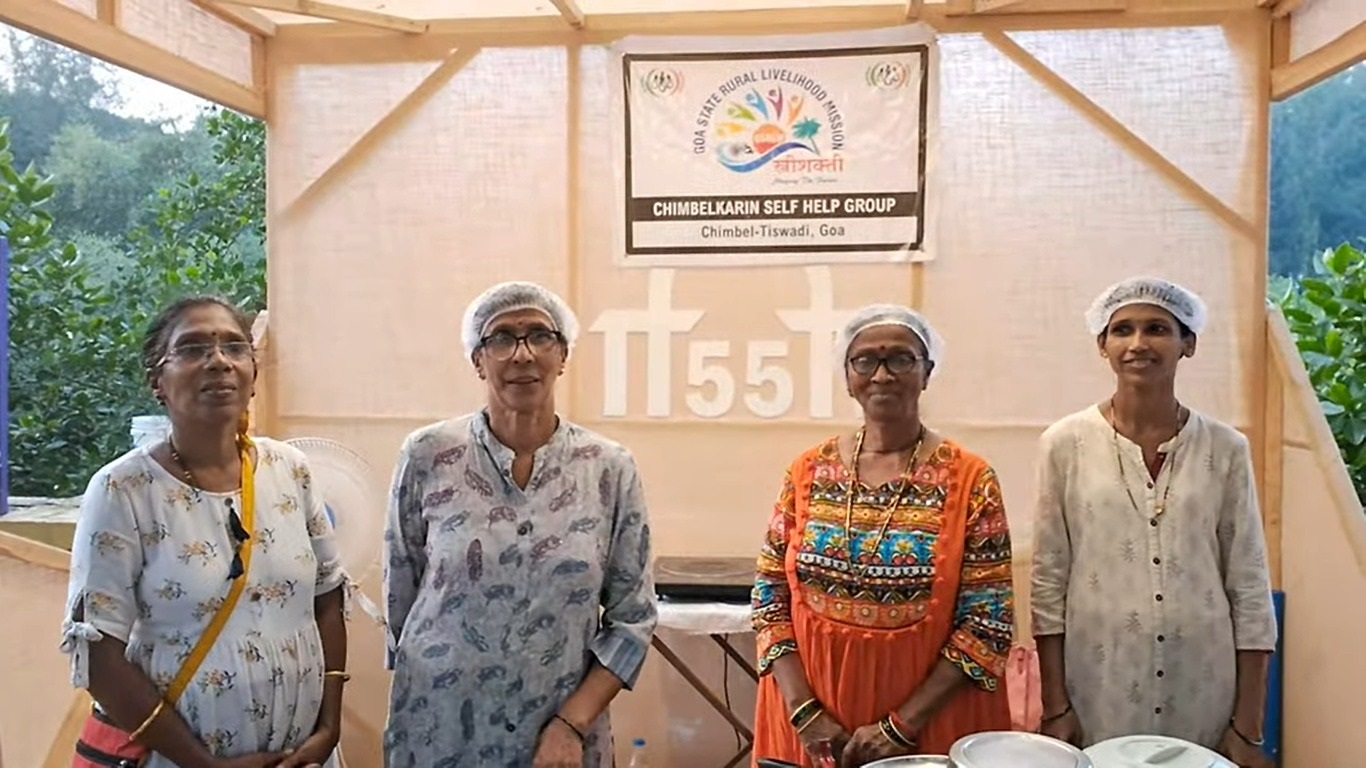Amidst the glitz of IFFI, the true essence of Goa shone through a bustling food bazaar run by self-help groups. The Goan discovers how these women turned traditional recipes into a script of empowerment, blending culture and entrepreneurship into a blockbuster performance

Amid the glamour of the International Film Festival of India (IFFI), where the world of cinema took centre stage, another equally captivating story unfolded. Along Panaji’s picturesque promenade, a vibrant food bazaar brought together the rich tapestry of Goan cuisine, crafted by the state’s self-help groups (SHGs). These remarkable women not only preserved Goa’s culinary traditions but also showcased their entrepreneurial spirit, resilience, and dedication.
The food stalls, adorned with colourful displays of local delicacies, buzzed with energy as aromas of freshly cooked meals wafted through the air, luring festival-goers. For many, these dishes were more than just a meal—they were a gateway to Goa’s soul. Behind every plate lay a story of tradition, hard work, and the unwavering passion of women who were the backbone of this flavourful celebration.
Chimbelkarin SHG, Chimbel
One such story belonged to the women of Chimbelkarin SHG, a group that had started privately before receiving government support last year. For years, these women prepared home-cooked meals for private events, perfecting their craft with every dish. At IFFI, they found a larger platform to share their culinary magic.
Their menu changed daily, offering breakfast staples like dosa, chapatti, idli with chutney, egg bhurji, upma, puri bhaji, and bhakri. For lunch and dinner, their offerings included fish specialties like prawns curry, mackerel, prawn fry, as well as chicken cafreal, xacuti, biryani, and vegetarian options.
The group operated like a well-oiled machine, meeting to plan menus, shopping for ingredients together, and preparing dishes as a team. "The feedback from customers was overwhelming," shared Radhika Borkar, a member of the group. She added that the experience not only boosted their sales but also expanded their network and built their confidence.
Kelbai SHG, Sanquelim
For the women of Kelbai SHG from Sanquelim, IFFI was a familiar stage. They had been setting up stalls for the festival for four years, delighting visitors with authentic Goan flavours. Specialising in seafood, their gravies and fried fish often sold out within hours.
This year, the group of ten women noticed a heartening trend—a growing number of Goan families visited their stall alongside Indian and foreign tourists. "Our food was prepared with love, and we saw it resonating with people," said Savita Gawas, a member of the group.
The Kelbai women took pride in their ability to bring the essence of Goan coastal cuisine to life. Their stall became a must-visit for anyone seeking the warmth and authenticity of home-cooked meals.
Shree Gurukrupa SHG, Betora Ponda
For Shree Gurukrupa SHG from Betora Ponda, this year marked their debut at IFFI. Though new to the scene, their stall quickly gained attention, especially from tourists eager to taste Goa’s traditional recipes.
"Our first experience wasn’t without challenges, but the response was beyond encouraging," said Pranoti Shetkar, a member of the group. She jokingly added, "While Goans ran to stalls selling continental food, the tourists were the ones who truly embraced our local dishes."
Over the nine days of the festival, the women of Shree Gurukrupa discovered a newfound confidence in their ability to connect with people through food. They looked forward to returning next year, ready to share more of their treasured family recipes.
Celebrating women and culinary traditions
These self-help groups represented much more than food stalls at a festival. They reflected the strength, creativity, and determination of women who had transformed their culinary legacy into an avenue for empowerment.
IFFI provided these women with a stage not only to showcase the flavours of Goa but also to tell their stories—stories of teamwork, perseverance, and the deep connection between food and culture. As visitors enjoyed plates of prawn curry or chicken xacuti, they also experienced the love, care, and hard work that went into each dish.
In the midst of IFFI’s cinematic grandeur, these women ensured that Goa’s true essence—its warmth, hospitality, and timeless flavours—shone just as brightly.